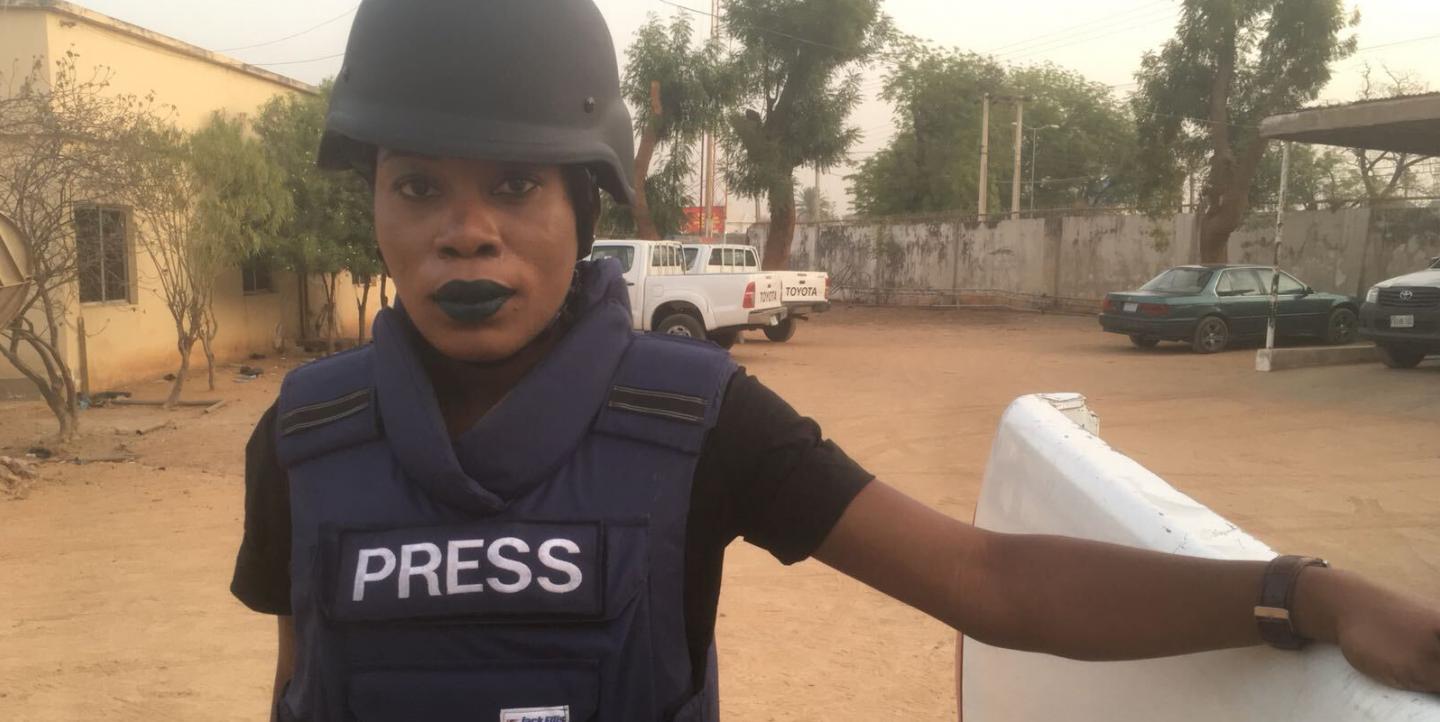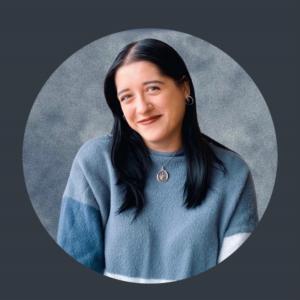Ruona Meyer grew up in Nigeria, in a family where journalism was always on their mind. Her father, Godwin Agbroko, was a journalist covering political issues in Nigeria beginning in the 1980s up until he was murdered in 2006 by unknown assailants. He was imprisoned several times for his outspokenness, and honored in 1997 with the Pen/Barbara Goldman Freedom to Write Award.
“I actually remember telling my father that I wanted to be a journalist like him, and he told me, ‘Look, do you want to be imprisoned all the time? Do you want to be poor?’ My dad tried to shield me,” Meyer said.
At the urging of her parents, she pursued a degree in microbiology. When she dropped out to be a journalist, they forced her back to school to complete the degree. But she never became a doctor like they had hoped.
By the time Meyer was finishing school for microbiology, she said her father was apologizing.
“He was already saying, ‘I can't really see you like this, and I am sorry. I wish I had supported you from the beginning,’ because it was quite clear that I was going to be a late starter in this profession,” she said.
At 27, she went back to school to pursue a degree in journalism and media studies from Wits University in South Africa, following it with a Masters in broadcast journalism from the University of Westminster in the U.K.
Today, Meyer is a Ph.D. scholar at the Faculty of Computing, Engineering and Technology at De Montfort University in the U.K. Her research interrogates the construct of counterpower within cross-border investigative journalism networks.
She was determined to make the best of the situation, using her science background to further propel her into a career in journalism. Meyer has worked with the BBC, the Financial Times of London, Reuters, BattaboxTV, the Premium Times and more.
She was also named Investigative Journalist of the Year in 2013, in Nigeria for her work on how Nigeria squanders millions on generators. And in April 2018, Meyer’s one-hour documentary Sweet Sweet Codeine about cough syrup abuse led to the first Emmy nomination for the BBC World Service — and for Nigeria.
We spoke with Meyer about how she’s incorporated her science background in her reporting, her efforts staying up-to-date with technology as a journalist and her advice for emerging journalists.
IJNet: You had an unconventional start in journalism. How have you used your unique background in science to help your reporting?
Meyer: I approach everything like science, and I keep records — I keep notes. I note down things as if I were in a lab, and I credit my science background with that. Also science stories are not that difficult for me to grasp because I first had a degree in microbiology. I can explain the science quickly, or immediately know when a source is trying to bamboozle me with science, and I can call them out on it.
In 2018, I pitched an investigation — I was working for BBC in Nigeria at the time — about cough syrup abuse. I'm very curious. I took that type of curiosity and said, “I have a brother who had a problem with cough syrup addiction. Where does he get the cough syrup from?” That's where my science came together because I was able to understand it, to know what questions to ask and then to depict it with graphics to make it easier for people to understand.
[Read more: Interested in writing about science? Here's a list of publications to pitch.]
What has been the biggest challenge in your career?
My biggest challenge has been trying to stay up to date. For a long time, journalism was one way, and then all of a sudden in the late 2000s, everything started to change, and it continues to change rapidly. Now you have to deal with fake news, disinformation, misinformation, and you have to make sure that you are educated. You cannot educate your audience, if you yourself are not educated.
However, I really wouldn't have it any other way. For a long time, journalism was one flat line, but now you see different types of journalism. It’s an exciting time. If there's anything COVID did, it pushed us to continue to come together, which is a challenge I actually welcome because it forces people to collaborate and look inward.
What role has academics played in your journalism career?
People should not be so rigid about journalism. There have been comments from my colleagues who think because I’m getting my Ph.D. I’m not reporting. But that's absolutely wrong. Actually I'm trying to work on a new documentary right now. As a researcher, I'm also actively writing, like a story I did recently about the drive through testing centers.
I'm also working on a podcast, which I will launch in August or so. I just want people to know that journalism is actually a license to develop different aspects of your experiences. I think I'm an example of that because this new hybrid of journalism where you can be an academic and you can also be a reporter, people should not be afraid of that.
[Read more: Tips for journalists interested in cross-border collaborations]
How have you used IJNet?
I can’t even remember when I started using IJNet — it’s always been a staple. What I know is that IJNet has helped me in my role of helping others.
The Reuters scholarship I received in 2009 to get my first formal training in journalism was sent by an editor who got an email. I then had to pay to use the internet in a cybercafe, to fill forms, and almost missed the scholarship that changed my career because I had to wait for days before being able to afford the internet to check my email. I vowed that this would never happen to anyone else if I could help it. With IJNet, passing opportunities to networks with limited internet has been easier over the years. It turns out that two or three, who I shared IJNet with, that's how they got jobs, that's how they got fellowships and that’s how they continued to grow.
I benefited in terms of the training. I benefited in terms of jobs. I go to the site just to see what the industry is like — to see what skills I need or what other sectors of the profession are looking for.
What’s your advice for emerging journalists?
Knowledge is power, and that knowledge also doesn't have to take place in a classroom. Yes, ideally, sit down and get trained — that has a place, too. But if you are just starting now, do not let costs and rigidity stop you.
It's never too late to start training. When I went to university for the first time to learn journalism, it wasn't that I was a bad journalist — I was doing okay — but I wanted to sit down formally and learn this thing that I loved so much. I wanted to be better.
Any knowledge you pick up is not lost. Whether you pick it up from a degree that you were forced to do by your parents or that you did because everybody was doing it, or whether you pick the knowledge from the people you speak to every day or from your first job flipping burgers. In journalism no knowledge is lost.
Images courtesy of Ruona Meyer.


